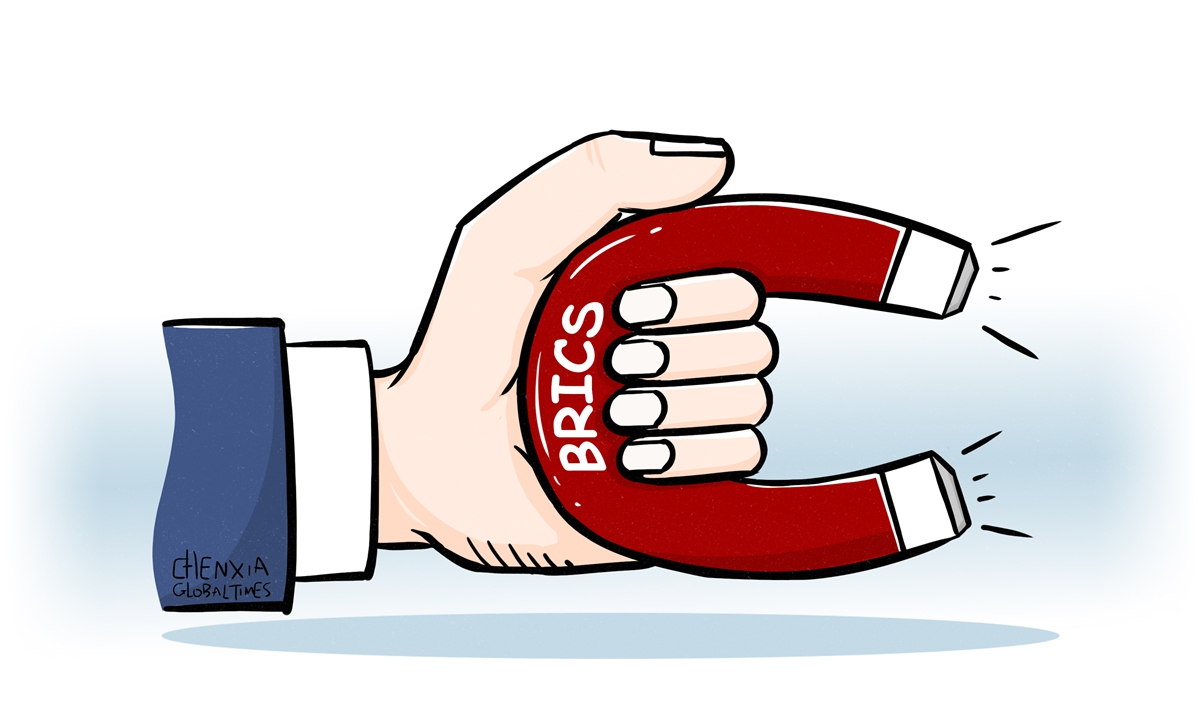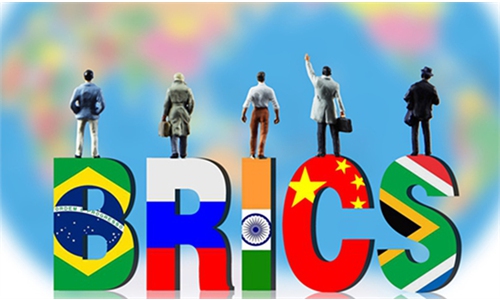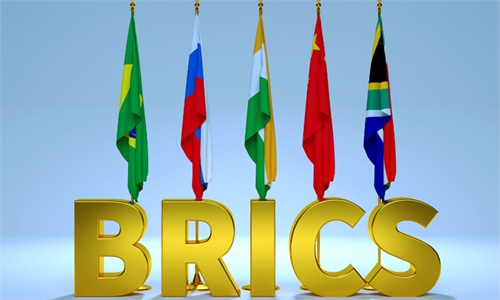
Illustration: Chen Xia/Global Times
Algeria has submitted an official application to join the emerging-market bloc of BRICS, which groups Brazil, Russia, India, China and South Africa, media reports said on Monday, citing Leila Zaruki, the Algerian Foreign Ministry special envoy for international partnership.
Algeria is Africa's biggest gas exporter and reportedly supplies about 11 percent of the natural gas consumed in Europe. As the global economy has entered a period of uncertainty and volatility partly due to the rampant inflation and high energy prices, some European countries have increasingly looked to Algeria to seek a solution.
Amid the current complex international environment, the North African country has gained more geopolitical importance and its application to join the BRICS grouping has drawn people's attention. In August, Algerian President Abdelmadjid Tebboune reportedly said that his country was ready to join BRICS.
There are other countries like Turkey, Saudi Arabia and Egypt who have also expressed their interest in strengthening their ties with BRICS members, or who are seeking to directly join the group. Their enthusiasm has demonstrated the strong vitality and attractiveness of the BRICS mechanism. The influence of BRICS cooperation has gone beyond the five countries and acts as a constructive force for boosting world economic growth.
Chinese Foreign Ministry spokesperson Wang Wenbin said in June that China actively supports the BRICS in starting the membership expansion process and expanding "BRICS Plus" cooperation. "China will encourage BRICS parties to continue in-depth discussions on the issue of membership expansion and work out standards and procedures for this process on the basis of consensus," Wang said.
Amid the heightened uncertainty throughout the global economy, some Western observers who have an ideological bias and zero-sum mentality should reflect on why BRICS is increasingly an attractive group that many other countries have confidence in. First, BRICS nations contribute about 50 percent of the economic development of the world, which makes the group very attractive economically. To seek sustainable development, BRICS members have enhanced cooperation in fields including trade, finance, supply chain and smart manufacturing.
BRICS brings together five major emerging market economies, comprising 41 percent of the world's population, owning 24 percent of the world GDP and 16 percent share in the world trade. Their role as an important engine of global economic growth will persist for a long time.
Second, the BRICS spirit of openness, inclusiveness, and win-win cooperation, against the background of increasingly unstable and volatile factors in the international situation, is also attractive to developing countries. BRICS members have differences in geographical features, size and social governance, but they are able to support each other on issues concerning their core interests, multilateralism, safeguarding fairness and rejecting hegemony.
Over the past 16 years since its inception, BRICS has maintained sound momentum of development and made substantive progress in cooperation. Chinese Ambassador to Thailand Han Zhiqiang said in June that China will host more than 170 BRICS events in various fields throughout the year. In the first half of this year, more than 20 ministerial meetings were held.
Currently, even as the world economy shows signs of recovery it faces fresh headwinds on the road to sustainable growth. Global governance is facing enormous challenges brought about by the US government's unilateral sanctions, long-arm jurisdiction and economic decoupling move. Emerging market economies should strengthen coordination and continue to use BRICS as an important platform for cooperation.
The author is a reporter with the Global Times. bizopinion@globaltimes.com.cn


